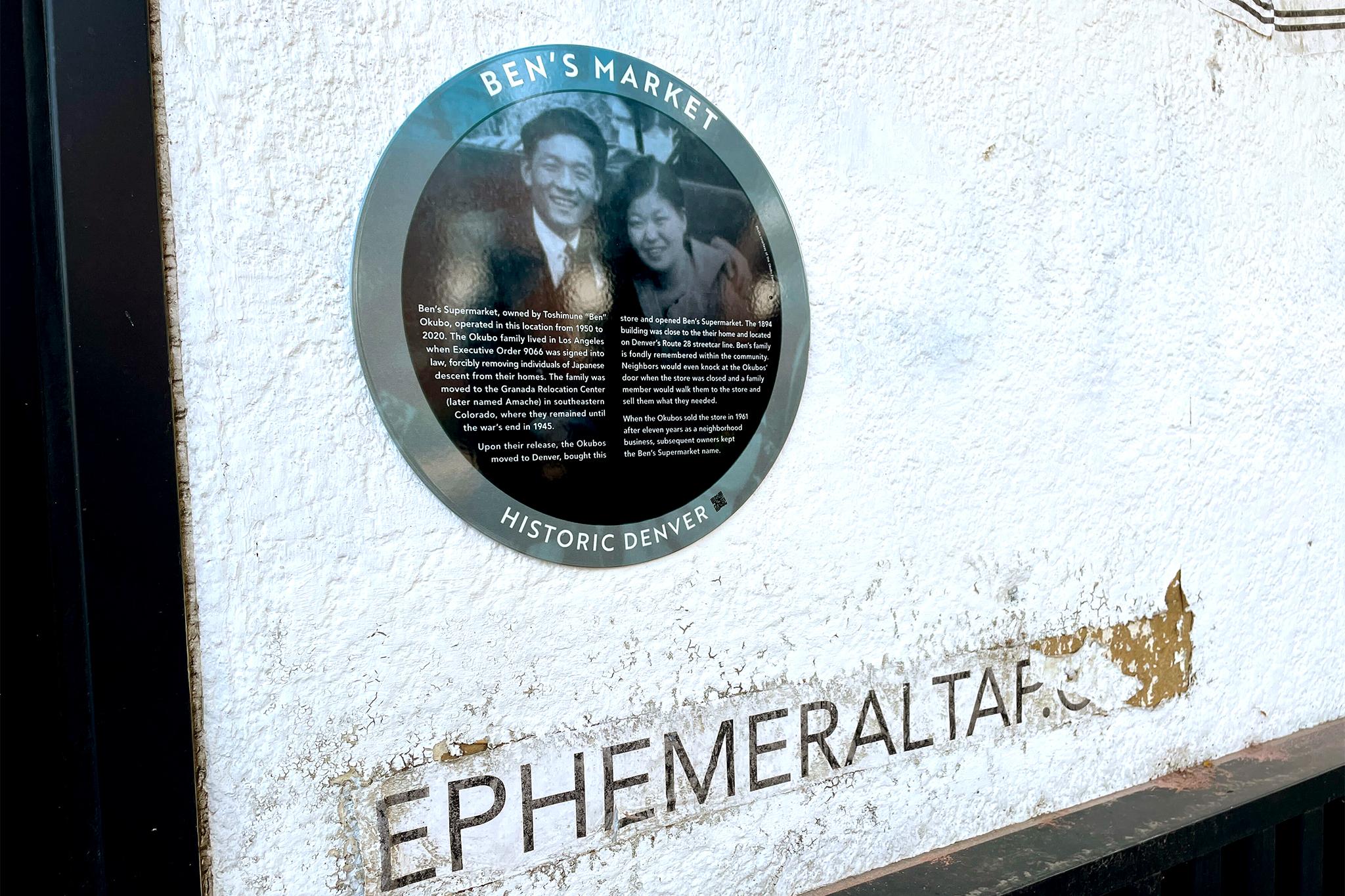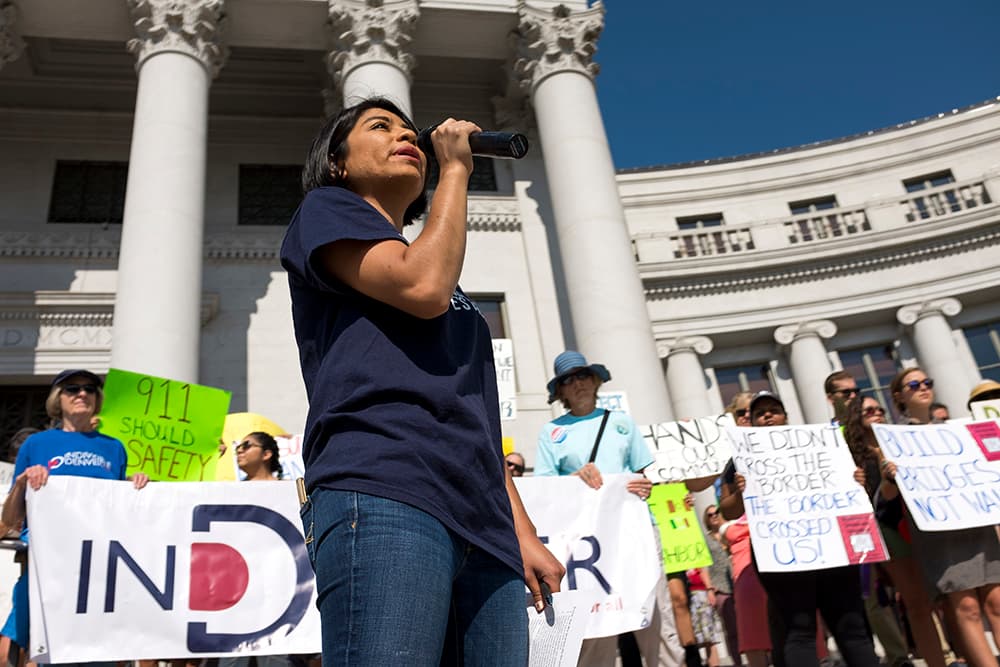
With more than 100 people watching, Denver council members on Wednesday set the city up for a debate about just how far it can go in opposing Attorney General Jeff Sessions and federal immigration agents.
Councilman Paul López and Councilwoman Robin Kniech have been working since April on a proposed new law that would strictly limit the city's cooperation with Immigration and Customs Enforcement. In a 6-1 decision on Wednesday, a city committee sent that proposal to the full council to consider later this month.
"We're watching our community being bullied -- not just some of us, but all of us," López said. "And if we don't stand up to these bullies, soon they're won't be enough people to stand up for you and me."
The city's elected leaders have been unified over the last six months in stating their support for undocumented and immigrant communities. However, the sweeping proposal is far from guaranteed to pass, at least in its current form.
For one thing, Mayor Michael Hancock's office recently introduced its own idea: a draft executive order that covers some of the same bases. The mayor's office has described his proposal as broader and potentially more flexible than the council proposal. It "formally removes Denver from immigration enforcement," Hancock said in a statement.
Both proposals say that Denver isn't responsible for enforcing immigration law, and both say that Denver jails should not hold people for suspected immigration violations if they would otherwise be released. They both give permanence to policies that currently are spread out across numerous departments.
"It will be, for the first time, written down in one place that I can show someone," Kniech said.
But there are some differences between the two proposals that have already opened up new debate.
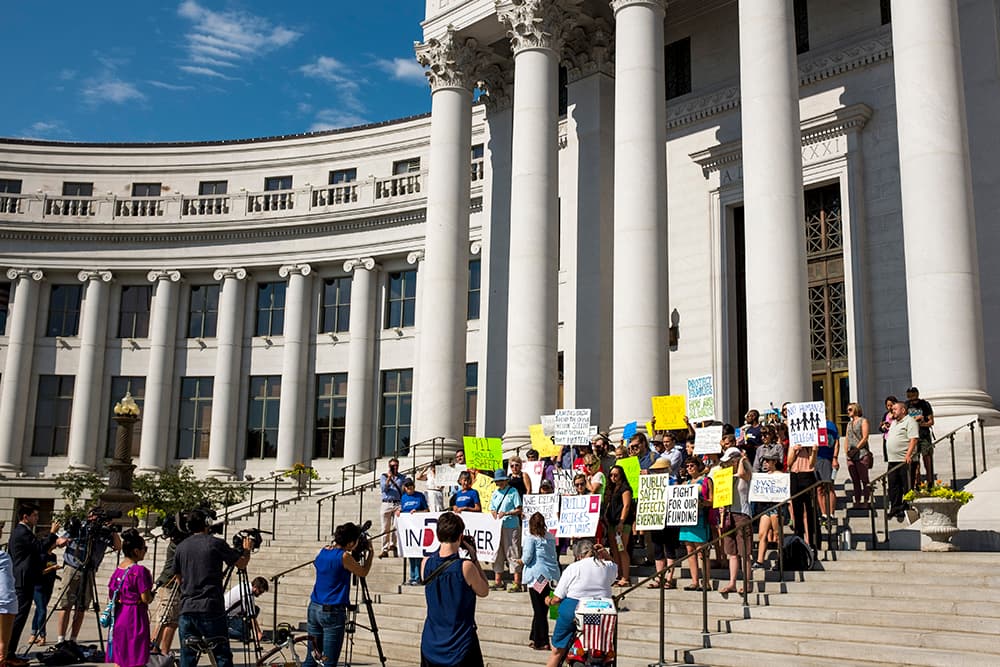
The mayor's proposal may slow Kniech and López's roll.
"There's another option -- and, granted, it came at the 11th hour," said Councilman Chris Herndon, expressing skepticism that the López-Kniech proposal would achieve its goals.
Councilwoman Kendra Black joined in a similar line of argument: "I don't want to ever give someone a false sense of security," she said, calling for another committee meeting.
And Councilman Kevin Flynn voted against moving the López-Kniech proposal forward, saying it wouldn't "make the community feel safer."
He added: "The only thing this changes is, we're not gonna tell ICE that we're releasing a heroin dealer from the jail."
That comment reflects one significant difference between the council bill and the mayor's order. Unlike the ordinance, the mayor's proposal allows ICE to interview immigrants in person in local jails, and it allows ICE to get advanced notice about the release of undocumented immigrants from jail in most cases.
The mayor's proposal appears to comply with a recent threat from the Department of Justice, which says that cities will lose federal money if they don't give ICE release notifications and jail access. Mayoral spokeswoman Amber Miller said that the compliance is unintentional and that the city would in no way bow to the department's pressure.
Hancock's proposal also would establish a legal defense fund, which may or may not get city funding, to help people facing deportation. (Find a more detailed comparison here.)
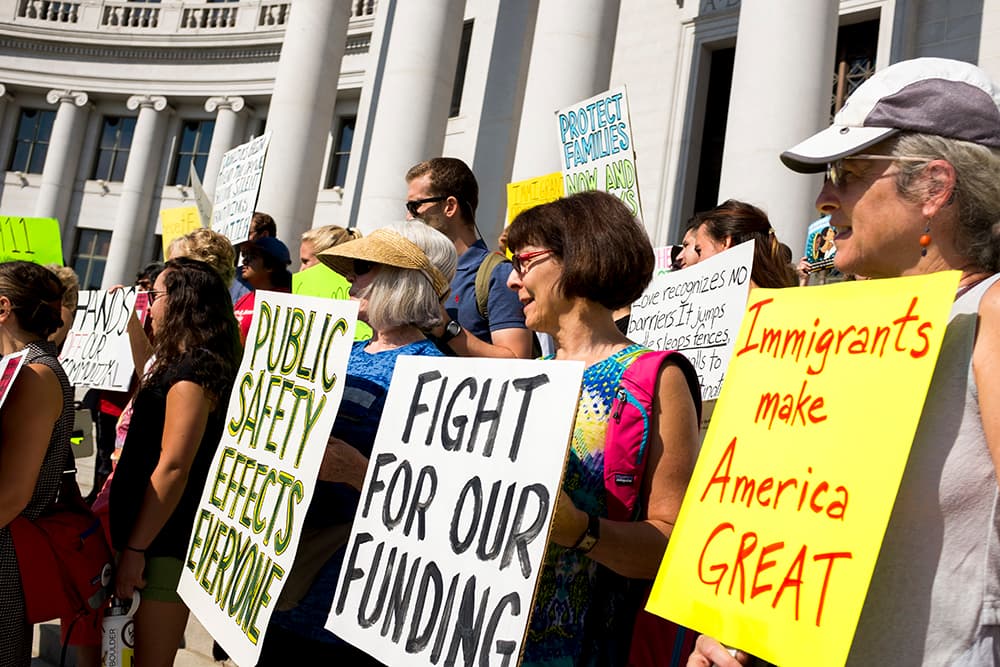
Kniech and López said they only learned recently about the mayor's proposal.
"We barely knew about it when everyone else did," López said. The mayor's office shared information about the mayor's plan with council on Monday morning, according to the mayor's office. The Denver Post published an exclusive on the mayor's proposal on Tuesday.
Councilwoman Robin Kniech noted that there had been "no formal process" to come up with the proposed draft order, contrasting it with what she and López described as a more involved community process for their own bill.
"There's something special about the legislative process," she said as the meeting opened.
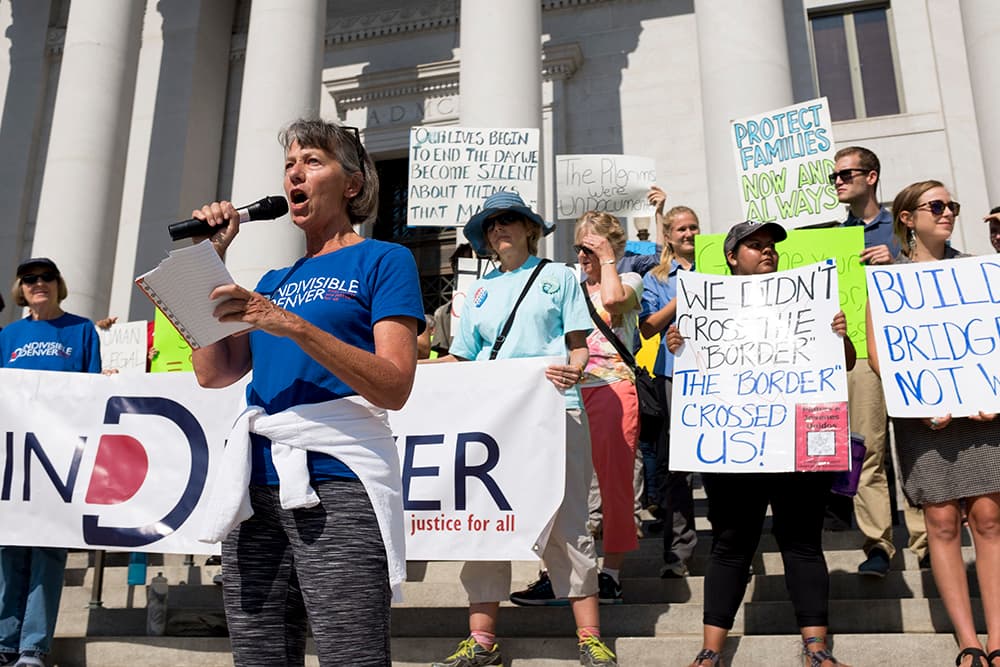
López and Kniech's supporters say they want Denver's immigration stance to be encoded in law, rather than an executive order that could be reversed by the next mayor. By contrast, a city attorney argued to The Denver Post that flexibility could be a good thing in dealing with the federal government.
A spokeswoman for Hancock said that his ideas also were rooted in the community meetings that followed the election and that the mayor's office will keep advocates in that discussion. Both groups of leaders said there's plenty of opportunity to discuss the two proposals.
No matter how it turns out, this much is obvious: Advocates for immigrant rights have successfully made their concerns a focus of local politics.
"As the federal government is not with us," said Juan Gallegos of the Colorado Immigrant Rights Coalition, "we need to work at the local level."
Correction: It was 6-1, not 5-1.








